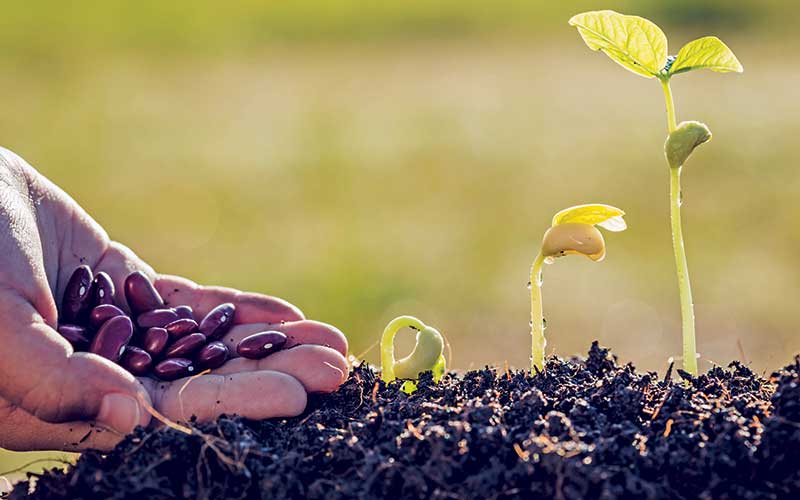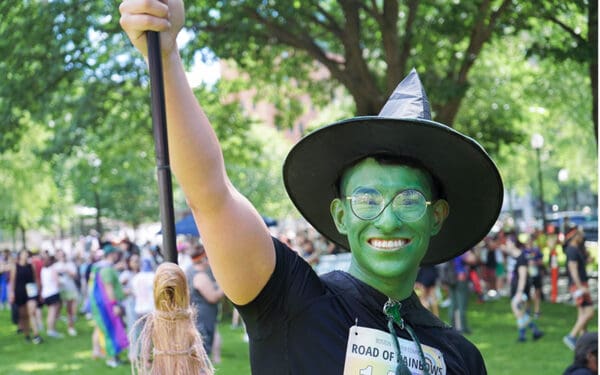
Local Food, Local Farms, and Lawyers Lending a Hand
Noah Fralich moved back home to Maine with one ambition: to open a business on his family’s land in New Gloucester. His fledgling Norumbega Cidery was just getting off the ground when he hit a snag – the name of his business was already trademarked by someone else. Now, in the midst of trying to grow his business, he was confronting a significant legal issue, with limited means to afford a lawyer to help him solve the problem.
Fralich’s not alone. Like any small business, farmers and food entrepreneurs have a slew of legal needs that, if not addressed properly from the outset, can lead to big problems down the road.
That’s why three years ago, CLF launched a first-of-its-kind network called the Legal Food Hub, which connects farmers, food-related organizations, and entrepreneurs like Fralich with pro bono legal services to help start, grow, and operate their businesses.
“Farmers and food businesses play an essential role in the health of our communities, environment, and economy,” says Jennifer Rushlow, director of CLF’s Farm and Food program. “We need them to thrive.”
The Hub evolved out of Rushlow’s efforts to hone CLF’s niche in the agricultural sector. The organization’s Farm and Food program strives to build a regional food system that supports access to fresh healthy food, protects farmland, grows the local economy, and cuts climate-warming emissions from food production and transportation.
In 2013, as Rushlow spoke with partners, farmers, and others at the center of New England’s local food movement, she soon realized that many farmers and food businesses were going without the vital legal services that are essential to their success. Indeed, according to the nonprofit Farm Commons, only 10% of surveyed farmers use legal services, compared to 70% of small businesses in general.
The legal gap was especially significant when it came to transactional law, such as incorporating a business, negotiating contracts with vendors, leasing or buying land or retail space, or transferring a farm to the next generation. “Some farmers and food businesses weren’t consulting with lawyers because they couldn’t afford one, while others didn’t realize that they even needed legal help,” she says.
That gap alarmed Rushlow, but she also recognized it as an opportunity. “We knew from our experience at CLF that there were many lawyers who would be willing to help if they knew about this problem and could make a connection,” she says. Her own familiarity with the pro bono process at law firms from her time at in private practice buoyed her confidence. “I knew that calling up a firm and asking them to do something for free was not as crazy as it sounds – especially where you can demonstrate a clear need for assistance.”
The response to those calls, she says, was overwhelmingly positive. “Many of the attorneys we talked to were excited about local food and already familiar with the challenges that face farm and food businesses, so they immediately understood why this was so important.”
The idea of dispensing free legal information is not a new one for CLF. In the organization’s early years, it provided legal advice to conservation commissions, private landowners looking to leave their property to conservation, and nascent environmental organizations navigating the complexities of the then growing body of environmental law. So it was fitting when, nearly 50 years after its founding, the organization built on its earliest legacy by rolling out the Legal Food Hub first in Massachusetts and then, the following year, in Maine.
Since then, the Hub has helped to secure close to a million dollars’ worth of pro bono legal services for 169 cases in 109 cities and towns. The Hub’s volunteer lawyer network has grown to more than 90 skilled attorneys who have helped clients with issues ranging from contract and lease negotiations to the transfer of land to the next generation. Success stories include 68 farmers, 110 local food entrepreneurs and organizations, and the legal work behind the creation of the Boston Public Market.
Rushlow and the Hub aren’t resting on their locally grown laurels, however. Expanding on its success in Massachusetts and Maine, the Legal Food Hub rolled out in Rhode Island this fall, adding a new emphasis on aquaculture businesses. Rushlow is also in talks with the Yale School of Law to expand the Hub to Connecticut in 2017. From there, a national expansion is on the horizon. “The challenges we address through the Hub are not limited to New England,” Rushlow says. “Small farmers and food entrepreneurs nationwide face many of the same issues we see here. CLF can be a leader by helping partners in other states develop this model and supporting a sustainable and robust local food economy across the country.”
For Noah Fralich, it all comes down to simply knowing that he has someone on his side. “It’s wonderful to have legal services available to people who need them,” he says.



